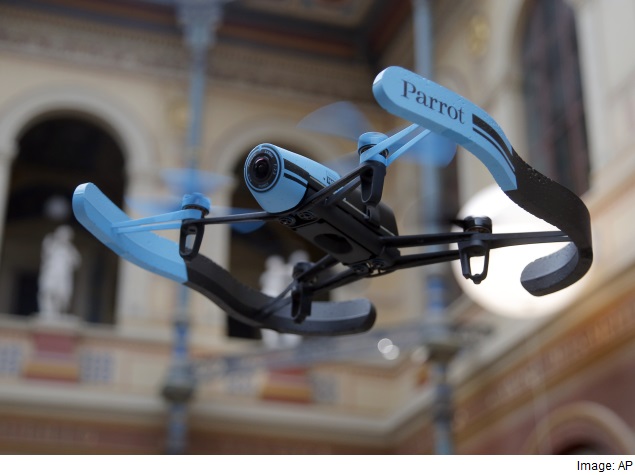- Home
- Transportation
- Transportation News
- US Drones Capture Breath Samples From Humpback Whales in Study
US Drones Capture Breath Samples From Humpback Whales in Study

Researchers at the Woods Hole Oceanographic Institute in Cape Cod have begun using a helicopter-style drone to monitor humpback whales off the coast, collecting breath samples from their blowholes and taking aerial pictures.
The scientists first deployed the 32-inch "hexacopter" drone in July to help assess the health of whales living in the Stellwagen Bank National Marine Sanctuary, about 45 miles (72 km) east of Boston, where there is significant ship traffic and pollution, Woods Hole said in a release on Monday.
"Rigged with a specialised camera system, the unmanned airborne vehicle flew 125 to 150 feet above sea level to get full-body photographs of 36 animals. It swooped down to 10 feet above seal level to collect 20 breath samples from 16 whales," according to the release.
The breath samples provided scientists with DNA and hormone and bacteria measurements, Woods Hole said.
Researchers plan to use the drone next winter to collect samples from the same whale species living near the Antarctic Peninsula, which is relatively pristine, it said.
"This will give us a new understanding of the relationship between whale body condition and health in the context of habitat quality," said Michael Moore, director of the institute's Marine Mammal Center.
Humpback whales are among the world's largest at up to 60 feet long (18.29 m), and migrate thousands of miles between their summer and winter feeding grounds. They were listed as an endangered species in 1970 after decades of fishing caused their populations to plummet.
© Thomson Reuters 2015
Catch the latest from the Consumer Electronics Show on Gadgets 360, at our CES 2026 hub.
Related Stories
- Samsung Galaxy Unpacked 2025
- ChatGPT
- Redmi Note 14 Pro+
- iPhone 16
- Apple Vision Pro
- Oneplus 12
- OnePlus Nord CE 3 Lite 5G
- iPhone 13
- Xiaomi 14 Pro
- Oppo Find N3
- Tecno Spark Go (2023)
- Realme V30
- Best Phones Under 25000
- Samsung Galaxy S24 Series
- Cryptocurrency
- iQoo 12
- Samsung Galaxy S24 Ultra
- Giottus
- Samsung Galaxy Z Flip 5
- Apple 'Scary Fast'
- Housefull 5
- GoPro Hero 12 Black Review
- Invincible Season 2
- JioGlass
- HD Ready TV
- Laptop Under 50000
- Smartwatch Under 10000
- Latest Mobile Phones
- Compare Phones
- Samsung Galaxy A07 5G
- Vivo Y500i
- OnePlus Turbo 6V
- OnePlus Turbo 6
- Itel Zeno 20 Max
- OPPO Reno 15 Pro Mini 5G
- Poco M8 Pro 5G
- Motorola Signature
- Lenovo Yoga Slim 7x (2025)
- Lenovo Yoga Slim 7a
- Realme Pad 3
- OPPO Pad Air 5
- NoiseFit Pro 6R
- Xiaomi Watch 5
- Acerpure Nitro Z Series 100-inch QLED TV
- Samsung 43 Inch LED Ultra HD (4K) Smart TV (UA43UE81AFULXL)
- Asus ROG Ally
- Nintendo Switch Lite
- Haier 1.6 Ton 5 Star Inverter Split AC (HSU19G-MZAID5BN-INV)
- Haier 1.6 Ton 5 Star Inverter Split AC (HSU19G-MZAIM5BN-INV)

















